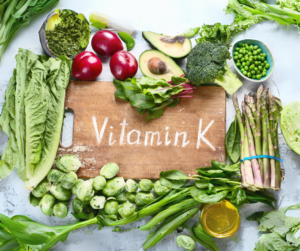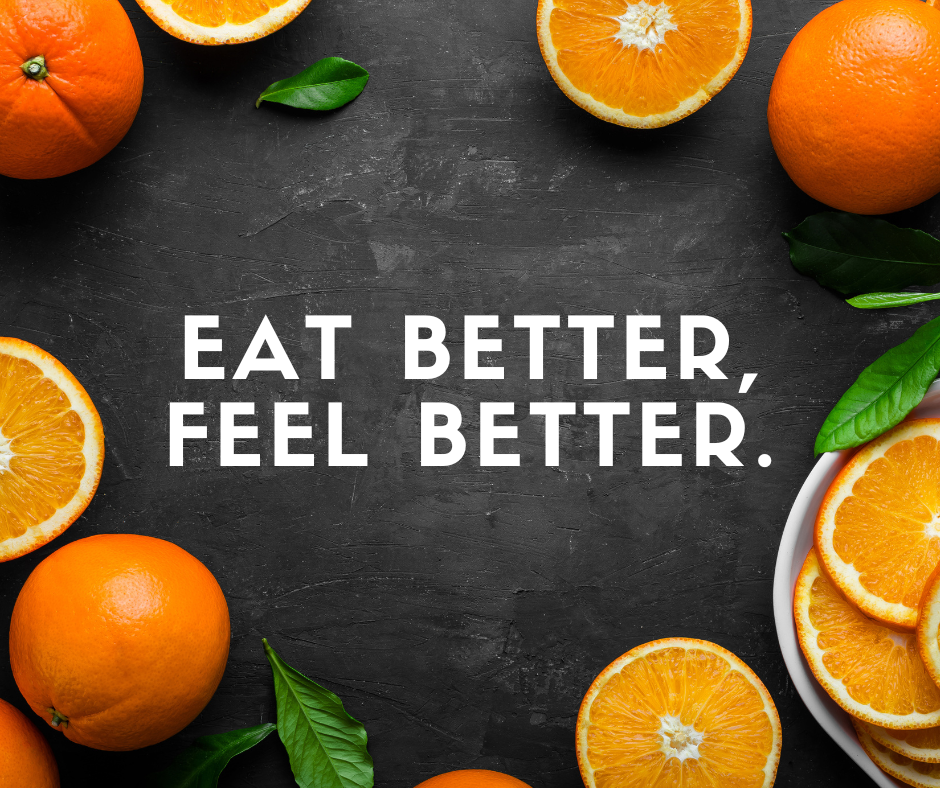Your digestive health is in your hands. The choices you make every day about what to eat have a huge impact on how your gut functions to help keep you strong and energetic. While it might seem complicated, supporting a healthy digestive system can be surprisingly simple. The answer lies in the power of plants. A plant-based approach to eating makes it easy to improve your digestion naturally. From reducing inflammation to boosting your gut’s population of good bacteria, plants can help improve your digestion and overall well-being.
In this article, we’ll dive into the fascinating world of your digestive system and explore how a plant-based diet can transform your gut health.
Anatomy of the Digestive System
Imagine your food as a tiny traveler embarking on a wild adventure through your body. This journey takes place within your digestive system, a complex network of organs all working together to turn your meals into the energy you need. Let’s follow that food traveler and see the sights along the way:
- The Mouth: The journey begins! Teeth tear and grind your food, while saliva starts breaking it down with special enzymes. Think of saliva as the first wave of digestive juices that softens your food and begins the breakdown of starches.
- The Esophagus: This muscular tube propels your chewed food towards your stomach. It’s not just a slide, though – muscles within the esophagus squeeze in rhythmic waves, helping move your food along.
- The Stomach: Think of this as a churning mixing bowl. Powerful acids and enzymes break food down even further into a semi-liquid known as chyme. Your stomach lining has special cells that produce these digestive juices, ensuring your food is thoroughly processed.
- The Small Intestine: It might be small in name, but this coiled tube is a powerhouse of nutrient absorption. Tiny projections called villi soak up all the good stuff from your food, sending it into your bloodstream.
- The Large Intestine: Here is where leftover water is reabsorbed, turning what’s left of your food into waste. The large intestine is also home to trillions of bacteria – your gut microbiome – which play a further role in digestion and overall health.
- The Rectum and Anus: The rectum stores stool until expulsion. The anus is the final part of the digestive tract, through which waste is expelled from the body.
In addition to these primary organs, several accessory organs play critical roles in digestion:
- Liver: Produces bile, which helps digest fats.
- Gallbladder: Stores and concentrates bile from the liver, releasing it into the small intestine.
- Pancreas: Produces digestive enzymes and bicarbonate, which assist in helping you break down fats, proteins, and carbohydrates in the small intestine.
The digestive system works hard to provide your body with the fuel it needs to thrive!
Basics of Digestion: From Ingestion to Elimination
Digestion is the fascinating process of your body breaking down food into smaller pieces so it can be used for energy, growth, and keeping your cells healthy. While it seems complex, it really boils down to a few key stages.
- Mechanical Digestion: This is the physical breakdown of food. It starts in your mouth with chewing and continues as your stomach churns the food. This turns big pieces into smaller ones, making them easier for your body to handle. Think of it as a blender that breaks down chunks of fruit for a smoothie.
- Chemical Digestion: This is where special chemicals get involved. Think of this phase as adding special ingredients that further transform your smoothie. Along your digestive journey, you’ll encounter:
- Enzymes: Enzymes are like highly specialized keys, each with a unique shape that fits perfectly into a specific “lock” (the substrate molecule). Just as a key is needed to open a lock, an enzyme is needed to trigger a specific chemical reaction.
You have different enzymes to break down different things:
- Amylase (found in saliva) starts the digestion of starches.
- Protease (found in the stomach) tackles proteins.
- Lipase (made by the pancreas) targets fats.
- Acids: Your stomach churns out some very strong acid, which helps break down food and creates the right environment for enzymes to work their magic.
- Absorption: This is the grand finale of digestion. Mostly happening in your small intestine, nutrients from your food are finally absorbed into your bloodstream, where they are then made available as fuel for your body.
- Elimination: Whatever your body can’t use is formed into waste and exits via the large intestine and anus. Think of this as the leftover bits of fruit or fiber that your body couldn’t fully digest.
The digestive process is a remarkable collaboration between different organs, each playing its own specialized role. By understanding the basics, you’ll better appreciate the amazing things your body does daily!
Gut Helpers: The Microbiome
Your digestive system isn’t just about the organs you can see. Deep in your intestines lives a whole world of tiny residents – your gut microbiome. Trillions of bacteria, plus some fungi and viruses, make up this bustling complex of microbes. Don’t be alarmed! Most of these microbes are good guys, crucial to your digestion and overall health.
Let’s look at what your microbiome does for you:
- Digestive Powerhouse: Your gut bacteria are masters of breaking down foods that your body can’t handle alone, especially tough plant fibers. This helps you extract even more nutrients from your meals.
- Vitamin Production: Some gut bacteria actually manufacture vitamins, like vitamin K and certain B vitamins, that your body needs to function properly.

- Immune Support: A healthy microbiome helps train your immune system to recognize harmful invaders and keep you healthy.
- Mind-Gut Connection: Believe it or not, gut microbes can influence mood and brain function. Research in this area is booming!
How Does a Plant-Based Diet Support Your Microbiome?
A plant-based diet plays a crucial role in supporting a healthy and diverse microbiome. Here’s how:
Diversity of plant fibers: Different plants provide various types of dietary fibers and resistant starches, which are not digested by the human body but are fermented by gut bacteria, promoting their growth and activity.

- Polyphenols in plants: Found abundantly in fruits, vegetables, nuts, seeds, and whole grains, polyphenols are bioactive compounds that can positively influence the microbiome, encouraging the growth of beneficial bacteria.
- Lowering inflammation: A diet high in plant-based foods can reduce systemic inflammation, creating a more hospitable environment for healthy microbial populations.
Key Benefits of a Plant-Rich Diet for the Microbiome:
- Enhances microbial diversity, which is linked to better digestive health and reduced risk of chronic diseases.
- Increases the production of beneficial SCFAs, which help to strengthen the gut barrier, reducing the risk of leaky gut syndrome.
- Supports detoxification processes and helps in the elimination of toxins and waste products.
- May reduce the prevalence of harmful bacteria that contribute to gastrointestinal disorders and chronic inflammation.
In conclusion, the gut microbiome is an indispensable ally in our quest for health, intricately linked with various aspects of our well-being. By embracing a diet rich in plant-based foods, we not only feed our bodies but also nourish the trillions of gut helpers that play a crucial role in maintaining our overall health.
A plant-based diet, abundant in diverse fibers, polyphenols, and nutrients, is the foundation for a robust and balanced microbiome, paving the way for optimal digestive wellness and beyond.
How Does A Plant-Based Diet Support Digestion?
Embracing a plant-based diet offers a plethora of advantages for digestive health. Rich in fiber, antioxidants, and essential nutrients, plant-based foods not only support the intricate processes of digestion but also contribute to a healthier gut microbiome and reduced inflammation.
Let’s delve into the key benefits of plant-based foods for digestion and explore how incorporating these foods into your diet can improve gastrointestinal wellness.
- High Fiber Content: One of the most significant benefits of plant-based foods is their high dietary fiber content. Unlike animal products, which contain no fiber, plants are rich sources, providing both soluble and insoluble fibers.
Soluble fiber helps to soften stool and reduce cholesterol levels by forming a gel-like substance in the gut.
In contrast, insoluble fiber adds bulk to the stool and helps food pass more quickly through the stomach and intestines, promoting regular bowel movements and preventing constipation.
- Antioxidants and Anti-inflammatory Properties: Plant-based diets are abundant in antioxidants and compounds with anti-inflammatory properties, which can help protect the digestive tract from damage and disease. These compounds can reduce oxidative stress and inflammation in the gut, which are linked to various digestive disorders, including inflammatory bowel disease (IBD) and irritable bowel syndrome (IBS).
- Supporting a Healthy Microbiome: A diet rich in a variety of plant-based foods supports a diverse and robust gut microbiome. The fibers and polyphenols found in plants serve as prebiotics, feeding beneficial gut bacteria and promoting their growth and diversity. A healthy microbiome is crucial for efficient digestion, nutrient absorption, and immune function.
Key Advantages of a Plant-Based Diet for Digestive Health:
- Enhances Regularity and Prevents Constipation: The fiber in plant-based foods helps to maintain bowel regularity, preventing constipation and promoting a healthy digestive tract.
- Reduces Risk of Digestive Disorders: Diets high in fruits, vegetables, whole grains, and legumes have been linked to a lower risk of digestive disorders, including colon cancer, ulcers, and diverticulitis.
- Promotes Nutrient Absorption: A healthy gut microbiome, supported by a plant-based diet, improves the body’s ability to absorb nutrients from food, contributing to overall health and well-being.
- Lowers Inflammation: The anti-inflammatory effects of a plant-based diet can alleviate symptoms of digestive discomfort and diseases characterized by inflammation.
Incorporating a wide variety of plant-based foods into your diet not only nourishes your body with essential nutrients but also plays a significant role in maintaining optimal digestive health. By focusing on whole, unprocessed plant foods, you can enjoy the myriad benefits these foods offer, paving the way for a healthier gut and improved overall wellness.
Tips For Digestive Health
Transitioning to a diet rich in plant-based foods doesn’t have to be daunting. With a few practical strategies, you can easily incorporate more fruits, vegetables, whole grains, legumes, nuts, and seeds into your meals, enhancing your digestive health and overall well-being.
Here are some tips to help you embrace a plant-centric diet smoothly and deliciously.
- Start Small: If you’re new to plant-based eating, gradually incorporate more plant-based meals into your diet. You don’t have to overhaul your diet overnight. Start with one plant-based meal a day, such as making breakfast or lunch entirely plant-based, and gradually increase from there.
- Explore Plant Proteins: Replace animal proteins with plant-based alternatives like beans, lentils, chickpeas, tofu, and tempeh. These foods are not only excellent sources of protein but also rich in fiber and other nutrients beneficial for digestion.
- Incorporate Whole Grains: Swap out refined grains for whole grains like quinoa, brown rice, barley, and whole wheat. Whole grains provide additional fiber and nutrients that are essential for healthy digestion.
- Snack on Fruits and Vegetables: Keep a variety of fruits and vegetables on hand for snacks. Carrot sticks, bell pepper slices, apples, berries, and oranges are all nutrient-rich snacks that can help satisfy your hunger and provide additional fiber.
- Experiment with Plant-Based Recipes: Explore new recipes and cooking methods to keep your meals exciting and diverse. Countless plant-based recipes available online cater to all taste preferences and culinary skills.
Practical Ways to Add More Plant-Based Foods to Your Diet:
- Include a vegetable with every meal: Whether it’s a side salad, roasted vegetables, or a vegetable-based soup, make sure vegetables are a part of every meal.
- Use plant-based milk: Substitute dairy milk with almond, soy, oat, or coconut milk in your cereals, smoothies, and recipes.
- Bulk up soups and stews with legumes: Add beans, lentils, or chickpeas to soups and stews to increase their fiber content and nutritional value.
- Choose whole-grain products: Opt for whole-grain bread, pasta, and cereals instead of their refined counterparts.
By incorporating these simple tips into your daily routine, you can effortlessly increase your intake of plant-based foods, leading to improved digestive health and contributing to a healthier lifestyle overall.
Conclusion
The connection between plants and a healthy gut is undeniable. From breaking down complex fibers to nurturing your inner ecosystem, a plant-based approach supports digestion in remarkable ways. It’s a win-win for your body and the world around you.
References
1 Aleksandra Tomova, et al. “The Effects of Vegetarian and Vegan Diets on Gut Microbiota.” Frontiers in Nutrition, vol. 6, 17 Apr. 2019, www.frontiersin.org/articles/10.3389/fnut.2019.00047/full?ref=medicalnotes.co, https://doi.org/10.3389/fnut.2019.00047. Accessed 29 Feb. 2024.
2 Zizinia, Sarah. “How to Improve Your Gut Health.” MD Anderson Cancer Center, MD Anderson Cancer Center, 29 Apr. 2022, www.mdanderson.org/cancerwise/how-to-improve-your-gut-health.h00-159538956.html. Accessed 29 Feb. 2024.
3 MacFarlane, Niall G. “Digestion and Absorption.” Anaesthesia & Intensive Care Medicine, vol. 19, no. 3, 1 Mar. 2018, pp. 125–127, www.sciencedirect.com/science/article/abs/pii/S1472029918300018, https://doi.org/10.1016/j.mpaic.2018.01.001. Accessed 29 Feb. 2024.
4 Beck, I T. “The Role of Pancreatic Enzymes in Digestion.” The American Journal of Clinical Nutrition, vol. 26, no. 3, 1 Mar. 1973, pp. 311–325, www.sciencedirect.com/science/article/abs/pii/S0002916523332416, https://doi.org/10.1093/ajcn/26.3.311. Accessed 29 Feb. 2024.
5 Ololade Akinfemiwa, et al. “Amylase.” StatPearls, StatPearls Publishing, 12 Nov. 2023, www.statpearls.com/point-of-care/17491. Accessed 29 Feb. 2024.
6 Takashi Uebanso, et al. “Functional Roles of B‐Vitamins in the Gut and Gut Microbiome.” Molecular Nutrition & Food Research, vol. 64, no. 18, 19 Aug. 2020, onlinelibrary.wiley.com/doi/abs/10.1002/mnfr.202000426, https://doi.org/10.1002/mnfr.202000426. Accessed 29 Feb. 2024.
7 Wiertsema, Selma P, et al. “The Interplay between the Gut Microbiome and the Immune System in the Context of Infectious Diseases throughout Life and the Role of Nutrition in Optimizing Treatment Strategies.” Nutrients, vol. 13, no. 3, 9 Mar. 2021, pp. 886–886, www.mdpi.com/2072-6643/13/3/886, https://doi.org/10.3390/nu13030886. Accessed 29 Feb. 2024.
8 Min-Gyu Gwak, and Sun-Young Chang. “Gut-Brain Connection: Microbiome, Gut Barrier, and Environmental Sensors.” Immune Network, vol. 21, no. 3, 1 Jan. 2021, www.ncbi.nlm.nih.gov/pmc/articles/PMC8263213/, https://doi.org/10.4110/in.2021.21.e20. Accessed 29 Feb. 2024.
9 Ye, Shuxin, et al. “A Critical Review on Interplay between Dietary Fibers and Gut Microbiota.” Trends in Food Science and Technology, vol. 124, 1 June 2022, pp. 237–249, www.sciencedirect.com/science/article/abs/pii/S0924224422001327, https://doi.org/10.1016/j.tifs.2022.04.010. Accessed 29 Feb. 2024.
10 Rana, Ananya, et al. “Health Benefits of Polyphenols: A Concise Review.” Journal of Food Biochemistry, vol. 46, no. 10, 13 June 2022, onlinelibrary.wiley.com/doi/abs/10.1111/jfbc.14264, https://doi.org/10.1111/jfbc.14264. Accessed 29 Feb. 2024.
11 Ma, Jie, et al. “Dietary Polyphenols in Lipid Metabolism: A Role of Gut Microbiome.” Animal Nutrition, vol. 6, no. 4, 1 Dec. 2020, pp. 404–409, www.sciencedirect.com/science/article/pii/S2405654520300986, https://doi.org/10.1016/j.aninu.2020.08.002. Accessed 29 Feb. 2024.
12 Thomas, Minu S, et al. “Healthy Plant-Based Diets Improve Dyslipidemias, Insulin Resistance, and Inflammation in Metabolic Syndrome. A Narrative Review.” Advances in Nutrition, vol. 14, no. 1, 1 Jan. 2023, pp. 44–54, www.sciencedirect.com/science/article/pii/S2161831322013011, https://doi.org/10.1016/j.advnut.2022.10.002. Accessed 29 Feb. 2024.
13 Piero Portincasa, et al. “Gut Microbiota and Short Chain Fatty Acids: Implications in Glucose Homeostasis.” International Journal of Molecular Sciences, vol. 23, no. 3, 20 Jan. 2022, pp. 1105–1105, www.mdpi.com/1422-0067/23/3/1105, https://doi.org/10.3390/ijms23031105. Accessed 29 Feb. 2024.
14 Deledda, Andrea, et al. “Diet-Derived Antioxidants and Their Role in Inflammation, Obesity and Gut Microbiota Modulation.” Antioxidants, vol. 10, no. 5, 29 Apr. 2021, pp. 708–708, www.mdpi.com/2076-3921/10/5/708, https://doi.org/10.3390/antiox10050708. Accessed 29 Feb. 2024.
15 Amrit Pal Kaur, et al. “Plant Prebiotics and Their Role in the Amelioration of Diseases.” Biomolecules, vol. 11, no. 3, 16 Mar. 2021, pp. 440–440, www.mdpi.com/2218-273X/11/3/440, https://doi.org/10.3390/biom11030440. Accessed 29 Feb. 2024.
16 Bo Ra Lee, et al. “Effects of 12-Week Vegetarian Diet on the Nutritional Status, Stress Status and Bowel Habits in Middle School Students and Teachers.” Clinical Nutrition Research, vol. 5, no. 2, 1 Jan. 2016, pp. 102–102, synapse.koreamed.org/articles/1059822, https://doi.org/10.7762/cnr.2016.5.2.102. Accessed 29 Feb. 2024.
17 Weber, Christine. “Diet Change Alters Microbiota and Might Affect Cancer Risk.” Nature Reviews Gastroenterology & Hepatology, vol. 12, no. 6, 12 May 2015, pp. 314–314, www.nature.com/articles/nrgastro.2015.77, https://doi.org/10.1038/nrgastro.2015.77. Accessed 29 Feb. 2024.
18 Divakar Dahiya, and Poonam Singh Nigam. “The Gut Microbiota Influenced by the Intake of Probiotics and Functional Foods with Prebiotics Can Sustain Wellness and Alleviate Certain Ailments like Gut-Inflammation and Colon-Cancer.” Microorganisms, vol. 10, no. 3, 20 Mar. 2022, pp. 665–665, www.mdpi.com/2076-2607/10/3/665, https://doi.org/10.3390/microorganisms10030665. Accessed 29 Feb. 2024.
19 Gomes, Amanda, et al. “Plant Proteins as High-Quality Nutritional Source for Human Diet.” Trends in Food Science and Technology, vol. 97, 1 Mar. 2020, pp. 170–184, www.sciencedirect.com/science/article/abs/pii/S0924224419308994, https://doi.org/10.1016/j.tifs.2020.01.011. Accessed 29 Feb. 2024.
20 Begum, Nabila, et al. “Nutritional Composition, Health Benefits and Bio-Active Compounds of Chickpea (Cicer Arietinum L.).” Frontiers in Nutrition, vol. 10, 28 Sept. 2023, www.ncbi.nlm.nih.gov/pmc/articles/PMC10580981/, https://doi.org/10.3389/fnut.2023.1218468. Accessed 29 Feb. 2024.

